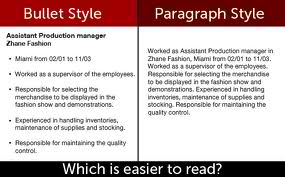Optimizing content for search engine results is the challenge that faces website owners and their horde of article writers and bloggers. No matter what the length of the material is, SEO content writing ought to be done with these primary considerations: increasing traffic to the site and improving rankings on search engine results. When things are done properly, a website that is search engine optimized would end up on the first page of Google and other search engine results. When search engine optimization is done by the best people around, then the site will definitely end up at number one. But getting to the search page results takes a lot of work. Here are few helpful tips to get your site optimized and hopefully these tips will get you where you want to be.
10. Start with the conclusion.

What we mean is not for you start making new rules in English composition. What we’re saying is that the concentration of key points and key words must be denser at the beginning than at the end. It helps optimize your site if each and every one of the content that you post is laid out as such. You should make sure to mention the keyword at the first sentence or at least the first paragraph. It’s alright to use keyword modification and synonymous phrases towards the middle and the end.
9. Never go astray.

In other words, you need to always stay on topic. You should have an organized flow of thought that is reflected in the structure and content of the article, and you must not go astray. The theme must be clear at the outset and must be consistent throughout the material. If you are selling something on your site you need to stick to the guidelines of business writing. There’s no room for diversion, or you might not project the impression that you want your readers to get. You may use some humor and add a little bit of personality to the article, but make sure it still exudes professionalism. Do not digress and be to the point.
8. The author bio needs a keyword, too.

Providing the author’s credentials at the end of the article is a good way of optimizing content especially if the keyword is included in the author’s bio. Articles that are submitted to a directory are usually provided. This bio contains relevant information about the writer of the article. One keyword is enough, though lest you be labeled as a spammer.
7. Lists vs. paragraphs.

So, which is easier to read, lists or paragraphs? The answer is quite obvious. And that means you ought to think about including more bullet points in the content that you will be posting on your site. More lists and less on paragraphs without breaks are the way to go. Online browsers are drawn more to text that looks easy to read than paragraph after paragraph that makes the text look as if there would be no end to it.
6. Keyword placement is key.

Wouldn’t it be nice to have posts on your site with keywords that are visible to search engines but not as obvious to readers (who tend to get annoyed by the repetition)? The keywords are there and the readers will realize where they are eventually but they won’t see them immediately. With this technique you’ll get readership from people who are tired of keywords on content. So, where can the keywords be alternately placed then? Keywords may be placed in the subheadings as well as in images, illustrations and other diagrams that you can insert in order to break the monotony of the text.
5. Mind where and how you tag.

One more method to garner highest placement aside from assuring professionalism and proper structuring in your content is to ensure that the tags are placed where they are optimal. For example titles are tagged with h1 tags whole subtitles need to utilize h2 tags. This helps optimize your content as well.
4. Don’t harbor ennui.

There is nothing more effective at turning away a visitor than boring content. But when you do use controversial statements just for bait then you won’t be doing your website a favor. Use links appropriately and sparingly. When this is done properly then there is no danger of boring your readers enough to push them away. You can always resort to humor because when used at the right places, readers get hooked and they will definitely keep coming for more.
3. Attract links.

Unique content goes a long way, but without links, there are roadblocks ahead that cannot be surmounted. The full definition of “optimized” includes having the ability to attract links and this must be done successfully or else Google will just ignore you no matter how much effort you put in. What’s not consequence of not being able to attract links? Well, your site will be buried deep and as better sites crop up it might never ever see the light of day again.
2. Variety is Queen.

Content is king and there is no contesting that. But variety is queen and we’ll stand by that. Variations on the keyword will not only sit well with your readers but it will improve your reputation in the niche as well.
1. Write for people.

There are many ways to write for your website. You can write to get high on the rankings and do it for the sake of search engines. Or you can write for people so that they will enjoy your talent while they are informed as well. But you can’t really write for both all the time. When given the choice, you need to write for people. The content may be judged by search engines in terms of ranking, but people will ultimately be the ones to read what you’ve written. Make sure you don’t forget that in the midst of all the things that need to be considered to optimize your site.
Leave a Reply